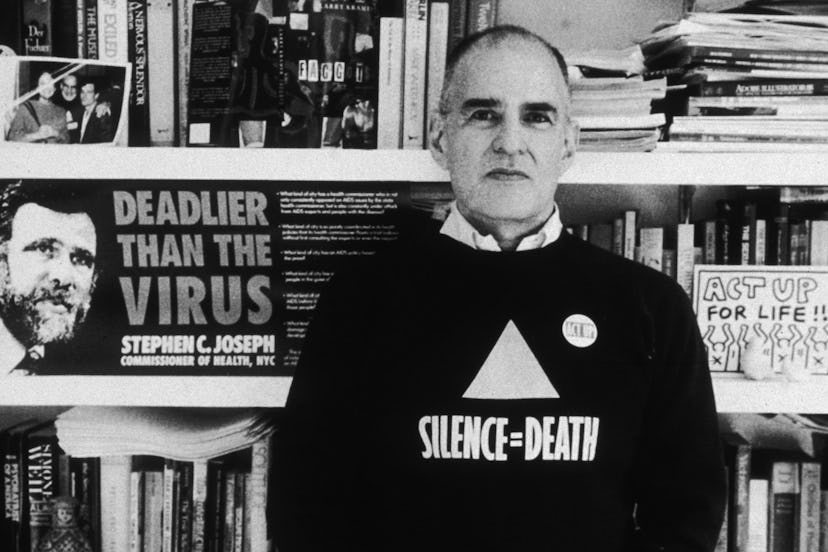Elton John and Julia Roberts Remember Legendary AIDS Activist Larry Kramer

“If this article doesn’t scare the shit out of you, we’re in real trouble. If this article doesn’t rouse you to anger, fury, rage, and action, gay men may have no future on this earth,” Larry Kramer began his historic essay “1,112 and Counting,” published in the New York Native in 1983.
Kramer, who died of pneumonia on Wednesday at age 84, was instrumental in campaigning for action amidst the AIDS crisis. He issued countless such clarion calls in his lifetime, from the days before the virus even had a name to the days its death toll stood at more than 32 million, as is the case at present. (In 2016, the CDC estimated that if current rates persist, one in two black gay and bisexual men may be diagnosed with HIV in their lifetime.)
Kramer was also a polarizing figure—which was often precisely how he managed to get so much accomplished. He co-founded the then top AIDS services provider Gay Men’s Health Crisis and the landmark protest group ACT UP. He ruthlessly urged gay men to act, from controversially criticizing “closeted gays” in his 1983 essay to yelling statements like “You are going to die, and you are going to die very very soon, unless you get up off your fucking tushies and fight back!” at crowds. He never minced words in criticizing the government and figures such as Ed Koch, either, repeatedly calling out their inaction amidst the “plague.”
Before the AIDS crisis, Kramer wrote the 1978 novel Faggots and the Academy Award-nominated screenplay of Women in Love. When the crisis hit—or, as Kramer put it, when “suddenly I was no longer the white man from Yale, I was a faggot without a name”—he continued to write. Most famously, he wrote The Normal Heart, a largely autobiographical 1985 play that marked a rare mention of AIDS in the mainstream at the time. Its revival—which saw Kramer stand outside, passing out fliers to theatergoers—won a Tony. Its 2014 film adaptation, which starred Mark Ruffalo and Matt Bomer, won an Emmy.
“I don’t have the words to properly express my gratitude, admiration , and love for you,” Bomer wrote in an Instagram caption addressed to Kramer on Wednesday. “Your writing was bold, courageous, and urgent. It educated, stirred people to action, and saved lives.” Julia Roberts, who was also in the film, described Kramer as “ferocious and tireless in his beliefs” in a statement to Variety: “A true hero that so many people owe their lives to today. I was honored to spend time in his orbit.”
The news of Kramer’s death came with an outpouring of anger at the New York Times for describing him as “abusive” in their obituary. (Kramer’s criticism of the paper’s lack of AIDS coverage was part of the original The Normal Heart set design.) But among celebrities, tributes along the lines of Bomer’s quickly started pouring in. “We have lost a giant of a man who stood up for gay rights like a warrior,” Elton John wrote on Instagram. “His anger was needed at a time when gay men’s deaths to AIDS were being ignored by the American government.”
“Larry Kramer is dead. Many of us are still alive because of Larry Kramer,” Justin Vivian Bond was among many to post. Zachary Quinto also took a broader view in his remembrance: “Every single out and proud gay man stands on the shoulders of Larry Kramer,” he wrote of the “titan” and “unflinching iconoclast.” The director John Cameron Mitchell recalled how even Anthony Fauci, Kramer’s “once enemy, later friend,” later called Kramer “essential” in the fight against AIDS.
https://www.instagram.com/p/CAsu76cp-Fx/
On Twitter, “rest in power” was a popular refrain among everyone from Chelsea Clinton to Janet Mock. Read their reactions, here.